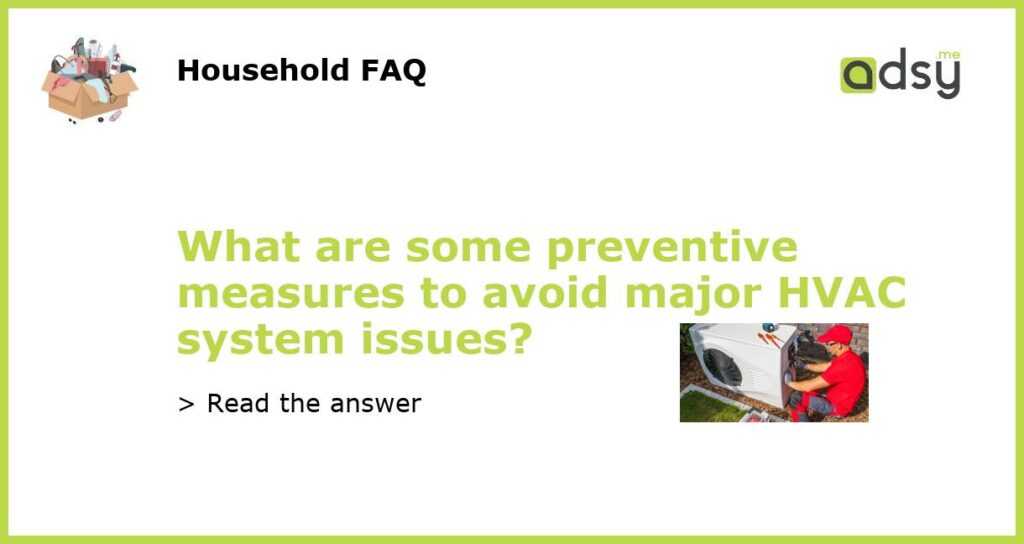Regular Maintenance
One of the most important preventive measures to avoid major HVAC system issues is regular maintenance. Just like any other complex machinery, HVAC systems require regular check-ups and tune-ups to ensure optimal performance. By scheduling routine maintenance visits with a qualified HVAC technician, you can identify and address potential issues before they become major problems. During these visits, the technician will inspect and clean various components of your system, including the filters, coils, and condensers. They will also lubricate moving parts and check for any leaks or damage that may be affecting the efficiency and performance of your HVAC system.
Clean and Replace Filters
A clean HVAC system is a happy HVAC system. One of the easiest preventive measures you can take to avoid major issues is to regularly clean and replace your system’s filters. Over time, these filters can become clogged with dirt, dust, and other debris, compromising the airflow and reducing the efficiency of your system. This can lead to increased energy consumption and potential damage to your HVAC system. By cleaning or replacing the filters on a regular basis, you can maintain optimal airflow and keep your system running smoothly. It’s recommended to clean or replace your filters every 1-3 months, depending on the level of usage and the type of filter you have.
Clear and Clean Outdoor Units
If you have an outdoor HVAC unit, it’s important to regularly clear and clean the area around it. Outdoor units are exposed to the elements and can collect dirt, leaves, grass, and other debris. This can restrict the airflow and cause your system to work harder than necessary to cool or heat your home. By clearing away any debris and keeping the area around the unit clean, you can ensure proper airflow and prevent major issues from arising. It’s also a good idea to visually inspect the outdoor unit for any signs of damage or wear and tear. If you notice any issues, it’s best to contact a professional HVAC technician for further inspection and repairs.
Monitor Thermostat Settings
The thermostat is the control center for your HVAC system, so it’s important to monitor and adjust its settings as needed. Setting your thermostat too high or too low can put unnecessary strain on your system and lead to major issues. It’s recommended to set your thermostat to a comfortable temperature and avoid constantly adjusting it throughout the day. If you’re away from home for an extended period of time, consider adjusting the temperature to reduce energy consumption and prevent your system from working harder than necessary. Additionally, upgrading to a programmable thermostat can allow you to set temperature schedules that automatically adjust based on your needs and preferences.
Keep Vents and Registers Clear
Another preventive measure to avoid major HVAC issues is to keep your vents and registers clear of any obstructions. Blocked or closed vents can restrict airflow and cause your system to work harder, leading to increased energy consumption and potential damage. Make sure all vents and registers are free from furniture, rugs, curtains, or any other objects that could obstruct the airflow. It’s also important to regularly clean the vents and registers to remove any dust or debris that may have accumulated. By keeping the airflow unrestricted, you can ensure optimal performance and longevity of your HVAC system.

